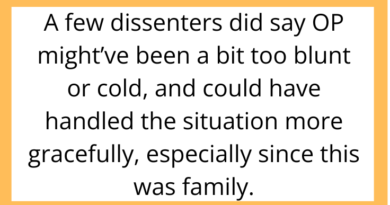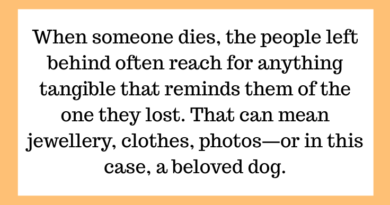AITAH for Refusing to Pay for My Sister’s Wedding
Weddings can bring families together—but they can also tear them apart when expectations and finances collide. Today’s AITAH story dives into a heated family dispute: Are you obligated to fund someone else’s big day if you’re working toward your own future?
Let’s get into the details.
The Situation: A Family Asking Too Much?

A 32-year-old man—let’s call him David—shared his dilemma in r/AITAH. David has been saving diligently for years to buy his first home. He works full-time, lives frugally, and has nearly reached his goal.
His younger sister, Lisa, recently got engaged. Lisa and her fiancé planned an elaborate wedding with a hefty price tag. When Lisa discovered her parents couldn’t cover everything, she turned to David.
Lisa asked him to contribute $15,000—nearly half of his down payment savings.
David was shocked. He politely declined, explaining that he had been working toward buying his own home for almost a decade. But Lisa didn’t take the refusal well. She called him selfish, accused him of not caring about her happiness, and rallied other relatives to pressure him.
David’s parents tried to mediate but ultimately took Lisa’s side, saying family should come first.
Feeling cornered and guilty, David posted to ask: Am I the villain for saying no?
Setting Boundaries: Is It Really Selfish?

Why David Said No
From David’s perspective, the request was unreasonable. He worked long hours, made sacrifices, and carefully saved to achieve a life goal—homeownership. Spending that money would set him back years.
He also noted he’d already agreed to help in other ways—offering to pay for part of Lisa’s honeymoon or contribute a smaller amount—but Lisa insisted anything less than $15,000 meant he didn’t support her marriage.
David felt pressured to abandon his own dreams to meet someone else’s expectations.
The Family’s View: Weddings Are a Big Deal

From Lisa’s and their parents’ perspective, weddings are once-in-a-lifetime milestones. They believed that family should rally together, especially since David had “more money” than Lisa and was in a “better position to help.”
They also argued that if David truly cared, he would find a way to make it work. Lisa had always looked up to her older brother, and she felt betrayed that he wouldn’t step up when she needed him most.
Reddit’s Verdict: Not the Villain

Commenters on r/AITAH overwhelmingly sided with David.
“Your savings are your business,” one wrote. “Lisa’s wedding isn’t your financial responsibility.”
Others pointed out that it’s unfair to label someone selfish for not funding an event that isn’t essential to survival.
Several commenters also warned that if David gave in now, similar demands might arise in the future.
The Bigger Question: Where Do We Draw the Line?

This situation reveals a deeper truth about family dynamics: Some relatives believe that emotional closeness justifies financial obligation. But just because someone is family doesn’t mean you’re obligated to derail your own life goals to fund their choices.
David’s experience highlights why boundaries are so important. Supporting loved ones doesn’t have to mean surrendering your own stability.
Moving Forward: What Could David Do?

For David:
-
Hold firm on his boundary with kindness and clarity.
-
Offer emotional support without financial sacrifice.
-
Consider explaining exactly how long it took to save, so Lisa understands the impact.
For Lisa:
-
Reflect on whether the wedding budget is realistic.
-
Appreciate the offers of smaller contributions instead of rejecting them outright.
-
Recognize that love and support aren’t measured in dollars.
You’re Not the Villain for Prioritizing Your Future

This AITAH scenario resonates because so many people have felt pressured to meet family expectations at the expense of their own plans. It’s okay to say no. It’s okay to protect your goals. And it doesn’t make you heartless—it makes you responsible.



